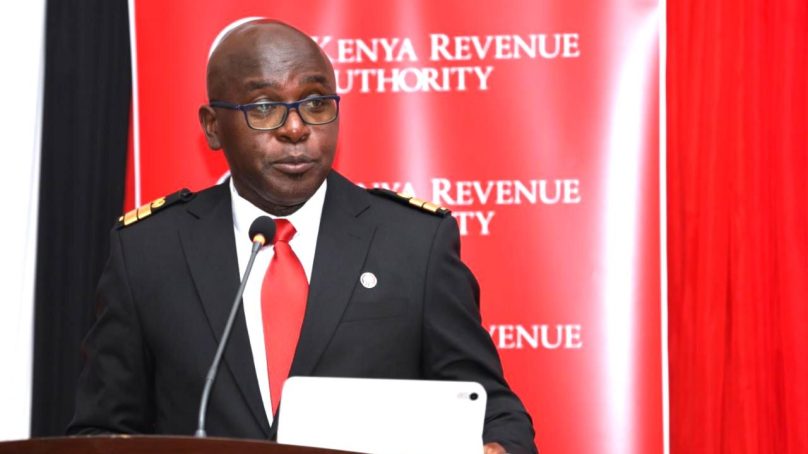
Kenya Revenue Authority (KRA) has reported a 6.8 per cent rise in revenue collection for the 2024/25 financial year, amassing Ksh2.571 trillion ($19.9 billion in taxes.
This positive fiscal outcome was recorded despite the economic challenges that characterized the period, demonstrating the KRA’s capacity to enhance national revenue generation.
In a statement released on July 10, KRA announced that it had surpassed its revenue target for the 2024/2025 financial year, collecting more than the projected Ksh2.555 trillion.
(On Friday, the Kenyan currency traded Ksh130 to the US dollar)
Beyond breaking its revenue target, the tax man recorded a 100.6 per cent performance rate, a substantial increase from the Ksh2.407 trillion collected in the last financial year, an increase that KRA credited to taxpayers, acknowledging their vital role.
The authority attributed this impressive growth to the taxpayers, acknowledging their consistent partnership in nation-building over the past three decades highlighting that every contribution had been instrumental in shaping Kenya’s development, emphasising that together, they had not just built revenue, but had also effectively built Kenya’s future.
They further highlighted that the prevailing economic indicators contributed to this success. Notably, Kenya’s gross domestic product (GDP) experienced a 4.7 per cent growth with significant expansion observed across key sectors i.e. agriculture, forestry and fishing, financial and insurance activities, transportation and storage, and real estate.
Despite collecting Ksh560.963 billion from pay-as-you-earn (PAYE) tax, a 3.3 per cent increase with a 99 per cent performance rate, KRA attributed the slower growth in this category to recent adjustments in SHIF and Housing Levy deductions, noting that the sluggish growth stemmed from taxpayers leveraging adjustment vouchers to offset their tax liabilities.
It also cited policy changes, including the reclassification of SHIF and Housing Levy from reliefs to allowable deductions prior to tax computation, as contributing factors.
Corporation Tax saw a significant 9.9 percent growth, with the KRA collecting Ksh304.833 billion. This increase was primarily driven by strong performances in various sectors, including ICT, manufacturing, financial services, real estate, and wholesale and retail trade. Additionally, positive results were seen in several areas, with Domestic VAT collection growing by 4.2 per cent to Ksh327.336 billion.
Excise tax on betting services notably surpassed its target, generating Ksh1.945 billion with a performance rate of 117.2 per cent. Betting Tax also exceeded its goal, bringing in Ksh5.70 billion against a target of Ksh5.495 billion.
Domestic excise duty, however, recorded a 97.2 per cent performance, collecting Ksh69.385 billion. This shortfall was largely due to a notable decline in revenue remittances from beer manufacturers (13.9 per cent) and tobacco product manufacturers (8.9 per cent).
- A Tell Media / KNA report / By Hellen Lunalo







